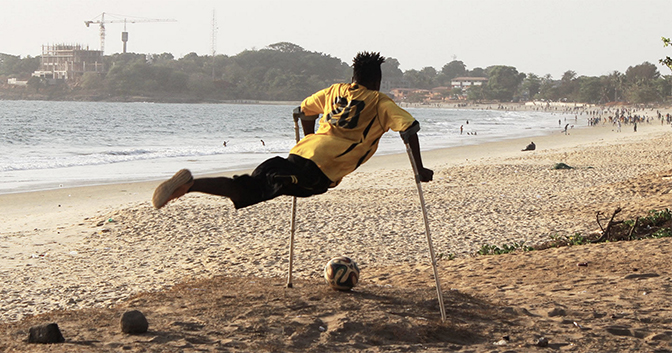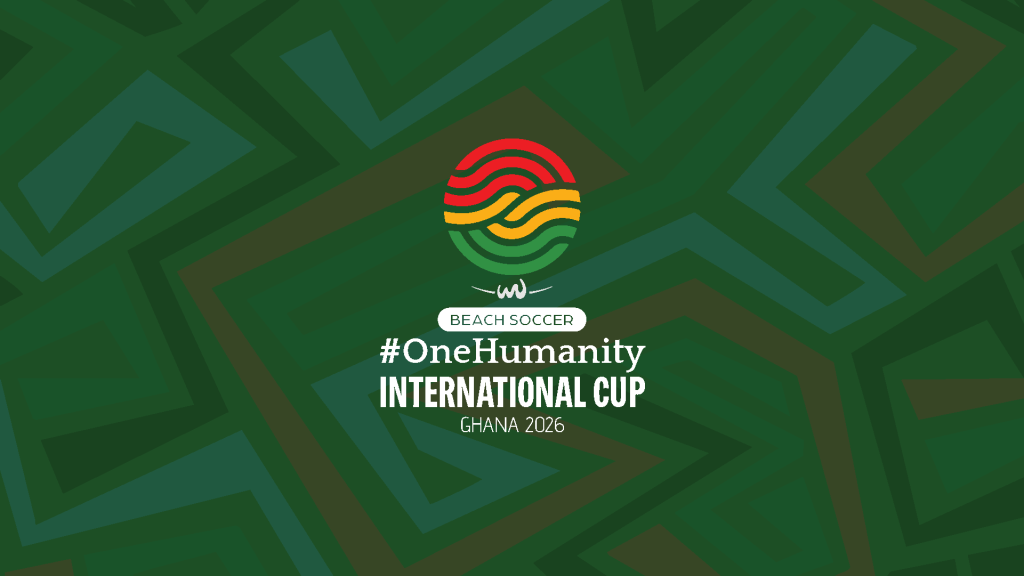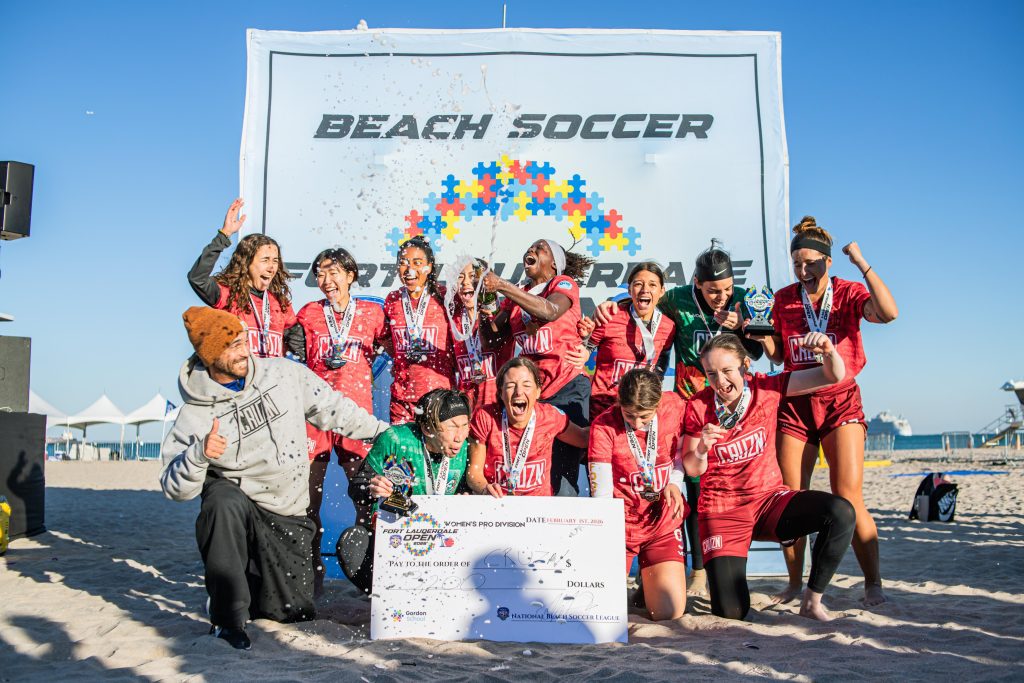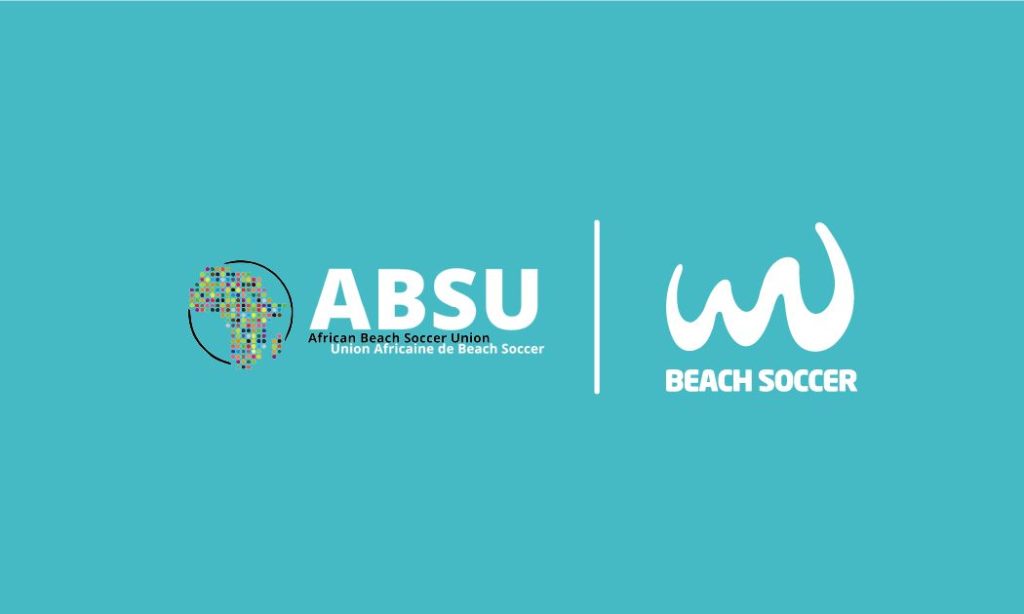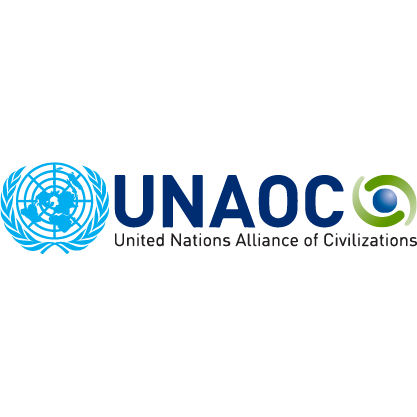Overcoming wounds of war and Ebola with goals on the beach
Walk along Freetown Beach, Sierra Leone, and, alongside stunning scenery and the bustling coastal road, you may also witness a remarkable group of men eager to move on from horrific memories and injuries with the help of a ball and the beach sand.
Salone Flying Stars are not your average football team. The side is made up of men who lost limbs during the civil war that raged in the African nation for over a decade from 1991.
Thousands of men, women and children were mutilated by rebel forces throughout the conflict while others were killed or injured by landmines, with Flying Stars set up as a way to stop amputees being forced to beg on the streets, instead offering a future and a common goal.
A pitchside Jaguar serves as their team coach, holding everything from kits to balls, while the ocean provides the backdrop to this most incredible team, who produce their own brand of high-octane beach football weekly.
To onlooking tourists, the plentiful struggles Flying Stars have overcome to enjoy their Sunday morning sessions may not be obvious. Aside from the horrendous experience of war, coupled with life-changing injuries, Flying Stars’ future came into question when Ebola broke out in 2014.
Sierra Leone was among the countries worst affected by Ebola, with tens of thousands dying, and the team could scarcely believe what awaited them in their homeland when they returned from a tournament in Kenya to discover the effect it had had.
Freetown had become a ghost town.
Aside from creating divisions and suspicion among the country´s people, the epidemic served as another huge roadblock for the team, who had gained worldwide respect and media attention for their achievements within football.
Flying Stars have been the subject of documentaries, films and print features but when Ebola hit, foreign interest dried up, along with funding that kept their various good causes, including camps and shops, running.
The government´s decision to ban major public events, such as football competitions, also had damaging repercussions for the team.
“On the one hand, we were not allowed to train or play,” defender Bonor Kargbo remembered.
“On the other, they stopped inviting other countries. No one wanted to know anything about us.”
“Money we used for food and to pay for school for our children stopped coming. No journalists arrived and we were dependent on people who would give donations.”
With Ebola now another difficult chapter in Sierra Leone´s past, rather than its present, Flying Stars can begin to smile again as they take to the beach once a week to laugh and joke…before the serious stuff begins.
After kick-off, friendships are set aside for fiercely contested games, although president Mohamed Lappiah acknowledges the club have further goals to achieve as they seek to continue their incredible story.
“We need to get back to playing games and receive financial support,” he added. “Without that, we can not pay the rent for the amputee camp and we all will end up begging on the streets.
Challenges may remain for Flying Stars but, given their ability to regularly overcome obstacles, you would not bet against them getting back on the sand for competitive fixtures again soon.
source: elespanol.com









